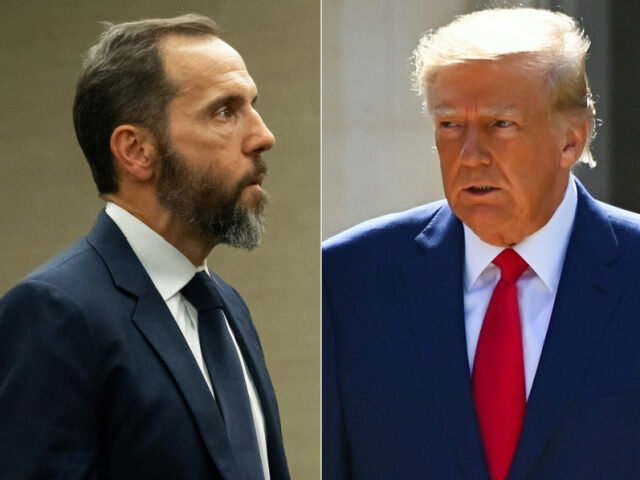WASHINGTON, D.C. U.S. District Court Judge Tanya Chutkan Wednesday unsealed special counsel Jack Smith’s latest motion in his salvaged case against Donald Trump for interference in the 2020 election.
Chutkan’s release of the redacted motion – filed last week – follows Trump’s surge in swing state polls and comes the day after Sen. JD Vance (R-OH), Trump’s running mate, shined in the vice presidential debate – likely the last debate in the election cycle.
Under local criminal rule 47(e) of the U.S. District Court for the District of Columbia, motions of this type are limited to 45 pages. Yet Chutkan allowed Smith to file a mammoth 165-page motion, which Smith used to rehash – in official court documents – political attacks and Democrat grievances against Trump yet to be proven in court.
Smith’s motion includes one-sided allegations that turn on Trump’s state of mind, repeating that Trump’s claims regarding the election were knowingly false and deceitful without allowing the possibility that Trump believed what he said.
Trump emphatically denies Smith’s charges, and many commentators profess that Trump sincerely believes that he would have won if all relevant laws were faithfully enforced.
The 165-page document is unusual in other respects, including the timing and manner of its release.
Chutkan could have kept the motion under seal until after the election. Instead, she released a lightly redacted motion that appears to have redacted little other than names.
Trump’s team argued more redactions were necessary if Chutkan chose to release the motion publicly. They also objected to the timing, noting that early voting has already begun.
Smith’s team Tuesday rejected any accusations of political motivation behind the filing or its timing, saying that despite the timing so close to Election Day, they have “no role or interest in partisan politics.”
DOJ policy does not allow prosecutions or legal actions that could influence ongoing elections.
Smith was forced to go back to a grand jury to salvage his case after the Supreme Court ruled in July that all presidents enjoy partial immunity for actions taken in office in an official capacity. Yet Smith’s superseding indictment contained the same four charges Trump originally was charged with, reconfigured to charge Trump in fact had acted as a private citizen, not as president, and therefore not immune. That is a disputed legal question that will be hashed out in court.
“The superseding indictment, which was presented to a new grand jury that had not previously heard evidence in this case, reflects the Government’s efforts to respect and implement the Supreme Court’s holdings and remand instructions in Trump v. United States,” Smith wrote at that time.
Trump wrote at the time that Smith’s latest effort “has all the problems of the old indictment, and should be dismissed immediately.”
Smith’s appointment itself was ruled unconstitutional in a Florida court this summer, where a Florida judged tossed Smith’s documents case against Trump.
The case is United States v. Trump, No. 23-3228, in the U.S. District Court for the District of Columbia.
Bradley Jaye is a Capitol Hill Correspondent for Breitbart News. Follow him on X/Twitter at @BradleyAJaye.

COMMENTS
Please let us know if you're having issues with commenting.